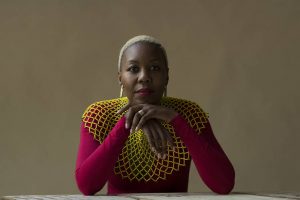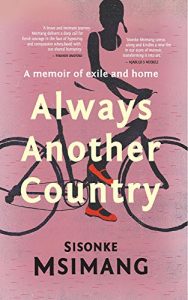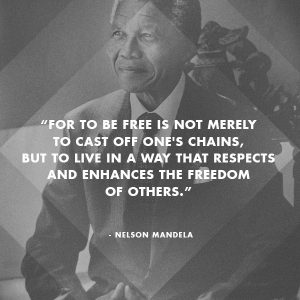Can reading a work of fiction that portrays violence cause the same discomfort as seeing a violent act? I am sure that after reading the novel Disgrace by J. M. Coetzee the answer is an assertive yes. Uncomfortable, disgusting and tense were some of the words I heard from my classmates when describing the novel and its protagonist. David Lurie is a professor of communications at the University of Cape Town, who rapes one of his students and faces a jury, which in turn results in him moving to the rural area where his daughter, Lucy, lives at a farm. Although the novel is set in the post-Apartheid period, the racial tensions are felt explicitly and implicitly through the actions of the characters and by the ascribed moral standards. The Apartheid was a series of policies implemented from 1948 until the early 1990s which institutionalized racial segregation and was based on a minority rule by white South Africans while black South Africans, Coloured, and Asians faced state-led oppression.
Two of the main themes we discussed in class regarding the novel and the post-Apartheid period were reconciliation and truth. These themes were very popular among my classmates’ posts, yet I was really interested in Azumi’s take on these themes. Based on her personal experience, prior to university, she wasn’t very familiar with the word reconciliation, however, when she looked up the definition, “the restoration of friendly relations” or “the action of making one view or belief compatible with another”, it made her feel uncomfortable. Reflecting on the limitations of language, Azumi mentioned Lurie’s theory of communication which describes how language is often not enough to express one’s feelings and emotions. Thus, her argument is that words may have complex meanings but it is hard to convey them in words or even harder to translate them into actions. Consequently, we could question the efficiency of the hearings resulting from Truth and Reconciliation Commission, which the novel alludes to, where perpetrators faced the families of their victims and had to tell the truth in order to receive amnesty. Similarly, Etana also reflected on the implications of telling the truth in the novel. She refers to a particular scene where Lucy tells the police about the robbery at her house, however, she doesn’t mention the fact that she was raped. Hence, Etana asks if whether telling half of a story is still considered to be telling the truth. Just like Azumi, she wonders if truth is achievable and comes to the conclusion that it is hard to define this word in a way that encompasses all the nuances of human nature. By acknowledging its subjectivity, Etana urges us, readers, to consider the intentions behind the actions of the characters instead of trying to fit them into the complex box of truth.
Another theme present in the novel which Suvi chose to analyze is the theme of vulnerability by comparing how different characters demonstrate being vulnerable. While Suvi explores the impact of rape in making both Melanie and Lucy feel vulnerable, she considers the fact that David Lurie only felt vulnerable once he was physically targeted and once his own daughter had been raped. Despite the minor changes in his character, the only moment where in my opinion David is truly vulnerable is when he puts the dog to sleep. Furthermore, based on Jodie’s and Jessie’s blog posts regarding sexual harassment I came to notice the impact of the power relations in the novel and how these relations may allow or may not allow space for vulnerability. Jodie researched on the issue of professors and students engaging in sexual relations. The argument that Jodie brings is that although both may be adults, the added pressure in such circumstances and the impact of non-consensual sex can be devastation. As she mentioned, on December 8th, 2017, the Quebec government passed Bill 151 which seeks to “prevent and fight sexual violence in higher education institutions”, representing a move towards the protection of students and disruption of power relations. In addition, Jessie described how Disgrace is a “difficult piece of reading to digest” especially due to how sexual assault is approached and weighted differently by Lurie when he is the perpetrator and when his daughter experiences it. Jessie argues that by choosing to portray David Lurie as disgraced, the author of the novel emphasizes the unjustifiable instances of sexual assault that women are subjected to. However, it is interesting to note that Lurie only lost his position of power, as it seems to me, once Lucy was raped and due to who the rapist was, a young black man who is considered to be part of Petrus family, the helper who works for Lucy. Even though I agree with Jessie’s argument that the fact that David raped Melanie might make him disgraced in the eyes of most readers, I believe that the author is trying to make a broader argument about the conditions of South Africa in the post-Apartheid period and how the racial tensions haven’t been reconciled.
Both Tracy and Meghan examine on their blog posts the intriguing role that animals play in the novel by serving as allegories to the racial relationships and aspirations of a new South Africa, the so-called rainbow nation. Meghan introduces in her blog the concept of speciesism which is defined as “discrimination in favor of one species, usually the human species, over another, especially in the exploitation or mistreatment of animals by humans”. According to her perspective, Lucy challenges the concept of speciesism by expanding on the notion that there is only one life that we share with animals and that in another existence she wouldn’t want to come back as a dog or a pig and live their lives of inferiority. Based on the relation of power and hierarchy that humans hold towards other animals, Tracy argues how the exploitation of animals can be compared to colonial violence. She believes that the dogs in the novel represent the non-whites in South Africa and while David at first feels no connection to the dogs and animals in general, his daughter has always been portrayed as an animals’ rights activist, implying that she understands the oppression experienced by non-whites during Apartheid and its legacy. Additionally, Tracy reflects on how the aggression of the black men towards Lucy’s dogs which is racially based resulted in the question of who are the victims? Is it Lucy who has been raped or is it the perpetrators who suffer from the legacy of racial segregation? Personally, this is what makes the novel so uncomfortable to me, the fact that I cannot make a valid moral judgment of who the victim is and if I decide that both Lucy and the perpetrators are victims, what does this imply about violence and segregation as policies or as revenge? What does this tell us about reconciliation?
Lastly, Daniel’s post really opened my mind about the larger effects of Apartheid and its legacy in the country and people of South Africa. He reflects on the “generational struggle to adapt to change” which can be seen in the character of David Lurie as his attitude towards sexual harassment and rape evolves as it happens to his own daughter. Daniel ties the idea of change in human social behavior to that of reconciliation introduced in the post-Apartheid period, suggesting that it is harder for a society to reconcile (“emphasis on the re”) if the relations between people in a society where never friendly. Building on this argument, I would like to bring in the work of Sisonke Msimang, author of Always Another Country, which I read for my GRSJ (Gender, Race, Sexuality and Social Justice) class. In her book, Sisonke tells the story of an exiled child whose parents were part of the leadership of the ANC and who grew up dreaming with a liberated South Africa, where racial tensions were no longer the norm. Once she went back to South Africa, already much older and married with children, she felt disappointed at the leaders she held so much admiration from afar. South Africa was not a rainbow nation and a lot of the more subtle structures of Apartheid were still held in place. Sisonke mentions the friendship that her grandfather had developed with a policeman, who would often come to his house and ask whether or not he had heard about where his son was. As she describes it in an interview, there was a prescribed hatred and familiarity in their relationship, something which might take years and several novels to change.
In conclusion, I believe that reading the novel Disgrace because it puts us readers in a position of discomfort forcing us to at least try to imagine the reality of post-Apartheid South Africa. It asks us questions about morals and above all, it calls for change. I believe that reading other resources such as an autobiographical novel about exile such as Always Another Country is important for us to understand the real consequences that Apartheid’s legacy has on the life of people.

Sisonke Msimang


Quote found at the entrance of the Apartheid Museum in Johannesburg.
